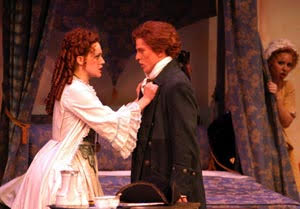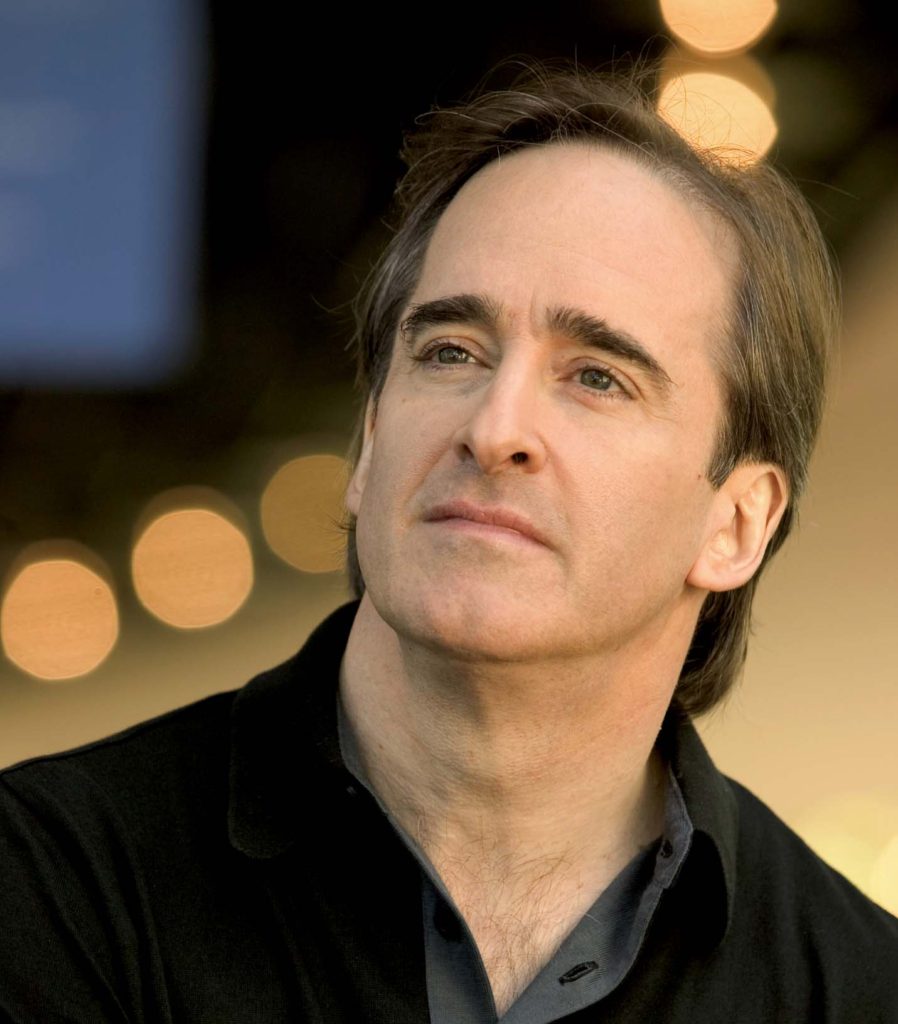Over the years, Santa Barbara has been host to a number of remarkable classical music performances and this year is no exception. James Conlon, renowned music director of the Los Angeles Opera, will lead the Music Academy of the West’s vocal fellows and orchestra in performing The Marriage of Figaro on Friday, August 3 and Sunday, August 5.
While many spend the entirety of their lives searching for meaning, Conlon stumbled upon what would later become his lifelong passion at the ripe age of 11 when he attended his first opera. Things progressed quickly and by age 15, Conlon was certain that he wanted to become a conductor. Born and raised in New York, Conlon attended a specialized high school for music and arts, proceeding to Juilliard where he was enrolled as a conducting student. The youngest in his class, Conlon demonstrated stunning alacrity in his studies. Upon graduation, he had already taken over a production of La Boheme, which earned him widespread acclaim throughout New York City.
Since his debut with the New York Philharmonic in 1974, Conlon has conducted symphonies and operas throughout the world. Conlon served as the Music Director of the Cincinnati May Festival for 37 years (1979-2016) and the Ravinia Festival for 10 years (2005-2015). Conlon has also served as the Principal Conductor of the Paris National Opera from 1995–2004, General Music Director of the City of Cologne, Germany from 1989–2002—where he was Music Director of both the Gürzenich Orchestra Cologne and the Cologne Opera—and Music Director of the Rotterdam Philharmonic from 1983–1991. He has gained renown throughout Europe, having conducted more than 270 performances at the Metropolitan Opera since his debut there in 1976. Having also conducted at Teatro Alla Scala, Wiener Staatsoper, Mariinsky Theatre, Royal Opera at Covent Garden in London, Teatro del Opera di Roma, Maggio Musicale Fiorentino, and Lyric Opera of Chicago, it is no wonder that Conlon has achieved an extensive symphonic, operatic, and choral repertoire. Currently, Conlon serves as the Music Director of the LA Opera and Principal Conductor of the RAI National Symphony in Torino, Italy.
Surprisingly, even with his extensive work in the realm of music, Conlon finds it impossible to choose favorites. Not wanting to choose sides, Conlon has split his work between opera and symphony in addition to between the U.S. and Europe.“Even if you put me against a wall with a shotgun, I can’t tell you who my favorite composer is,” says Conlon. “I don’t have a favorite piece, I don’t even have a favorite era.”
However, what Conlon does have is an unbreakable love for the composer and composition. According to Conlon, the conductor’s role is the same as the instrumentalist’s: to manipulate the instrument to allow music to flow through. Conlon says, “The conductor’s basic art is the human contact with the people as they are making music. So I am here to inspire them. I am here to organize the music in a particular way because there are many different ways to do a piece, so there has to be a center of gravity with an orchestra. Otherwise, you’d have a hundred opinions about how to do it, so the conductor is a unifying force at that moment.” No matter how big or small, each instrument plays a vital role within the orchestra. In Conlon’s eyes, the best performances are the ones where the composer and the composition sit directly in the limelight. “The first thing is to take my ego out of it,” says Conlon. “I believe when you open yourself up to that music, it will reverberate intellectually, emotionally, and then that’s the degree you can also give it back to a public. That’s why I speak of it as a vessel because the first thing to do is to get yourself out of the way of the music because music speaks for itself.” For Conlon, the performance transcends simply the notes written on the page. Aware that his inspiration originated from an opera performance, Conlon remains conscious that each of his performances contains the opportunity for somebody to also discover their passion for classical music. To put it quite simply, according to Conlon, “Each time could be the last time I conduct that piece, so I have to give it everything I have. And I have to give them the best I have because I have the possibility to change somebody’s life for the better. For me, it could be the last time, and for somebody, it could be the first time.
For those interested in pursuing music, Conlon offers this bit of advice: “Music isn’t an industry in the musician’s eyes. It is a way of life. It’s an orientation. If you’re passionate about something, you don’t need to be motivated by anything else such as money and fame. You’re passionate about the thing itself and you never run out of energy. Learn everything you can. There is no piece of knowledge that is useless when you’re going to conduct, so learn about other instruments, about composers, about their music, learn about music from all eras. There are specialists, but there’s this cliche saying that a specialist is someone who knows too much about too little.” A strong believer in being a well-rounded individual, Conlon advocates for a horizontal understanding, saying that understanding different topics allows you to put everything else into perspective.
Conlon’s upcoming performance will feature the Music Academy of the West in a rendition of Mozart’s The Marriage of Figaro. Although not one to choose favorites, Conlon says, “The Marriage of Figaro is one of the greatest of all things; it is way up there. My conviction is Mozart never wrote a bad thing. It is one of the best operas, it’s funny and it’s beautiful.”
The Marriage of Figaro explores the contentious struggle between social classes, underscoring the limitations of rank and power in the battle against wisdom and sensibility. The story takes place in Spain, centering on the relationship between Count and Countess Almaviva. Figaro, the Count’s personal valet, is engaged to marry the Countess’ maid, Susanna. However, Figaro, jealous of the Count’s advances towards Susanna, attempts to trap the Count in his infidelity.
The Marriage of Figaro takes place at the Granada Theater (1214 State St., Santa Barbara) on Friday, August 3 at 7:30 p.m. and Sunday, August 5 at 2:30 p.m. For tickets or more information, visit the Music Academy of the West’s website here or call 805/969-8787.


